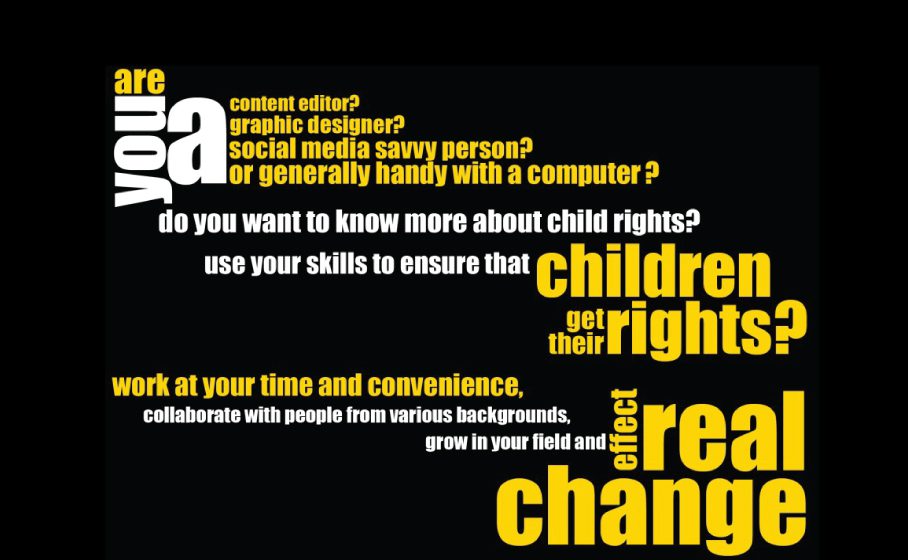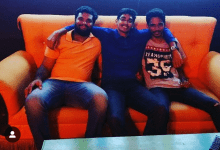CRY and its partner NGOs interacted with more than 1000 children at various CRY project areas, to deliberate on a range of issues reflective of their daily challenges. A report for Different Truths
As India gears up to host the general election in a couple of months, CRY – Child Rights and You captures voices of the 40% of the Indian population, its children, aimed at influencing the leaders and the political parties to prioritise children’s issues in their election agenda.
· “The school is very far, we have to walk all the way.”
· “There is a toilet in our school, but with no provision of water. Can’t we have a better, working toilet, and a separate one for girls?”
· “There is no medicine available in the government health centre in our village. One has to buy medicines from medical shops which are so costly.”
· “Children are treated badly in brick kilns and in agricultural fields. There should be a law to ban child labour completely.”
· “There are no proper security measures in the government girls’ hostel. We are afraid during nights.”

These were just a few salient observations voiced by children from different corners of the country, as they interacted among themselves, and pointed out the challenges they used to face – their trials and tribulations – in their own terms. Hailing from different socio-economic and cultural backdrops and from both rural and urban settings, these children belonged to varied age-groups, and gave voice to the expectations of young India.
“We hope to be taken seriously by our leaders, because they have the power to transform our lives for the better.” ~ A 16-year-old child
If the above-mentioned demands were not enough, this one surely drove the point home, where, underscoring the significance of children’s voices and aspirations in the electoral process, a 16-year-old child from Delhi said, “We hope to be taken seriously by our leaders, because they have the power to transform our lives for the better.”
Among various other needs and aspirations highlighted by the children, digital classrooms along with computer education, availability of operational toilets and separate facilities for girl children, availability of drinking water and provision of all-weather roads ensuring easy access to schools emerged to be the major ones, in the document, ‘Our Aspirations From Our Government: The Voice of India’s Children’, prepared and published by CRY-Child Rights and You.
 With the parliament election around the corner, CRY kick starts an initiative through which they want to convey the voices of children – their aspirations and demands from the leaders of all political parties – and request them to keep children’s demands in mind while drafting election manifestos for their outfits.
With the parliament election around the corner, CRY kick starts an initiative through which they want to convey the voices of children – their aspirations and demands from the leaders of all political parties – and request them to keep children’s demands in mind while drafting election manifestos for their outfits.
Elaborating on the objective of the initiative, Puja Marwaha, CEO, CRY said, “Children are equal citizens of our country. This document is an expression of their aspirations, dreams, and wishes, in which they have laid bare their hearts in front of us, the adults. The responsibility is now with us to fulfill these aspirations and demonstrate a strong political will in changing their lives for the better, what they truly deserve.”
Puja Marwaha, CEO, CRY said, “Children are equal citizens of our country. This document is an expression of their aspirations, dreams and wishes…”
CRY and its partner NGOs, facilitated by Praxis: Institute for Participatory Practices, interacted with more than 1000 children at various CRY project areas, to deliberate on a range of issues reflective of their daily challenges related to education, health and nutrition, protection and safety, standards of living and existence.
A small contingent of child representatives submitted the document to the Chairperson of the National Commission for Protection of Child Rights (NCPCR) and urged the Child Rights body to endorse and spread their voices nation-wide.
Priyank Kanoongo, Chairperson, NCPCR said, “Children’s problems should come to an end before their childhood is over.”
Taking into account the voices of children, Priyank Kanoongo, Chairperson, NCPCR said, “Bacchon ki bachpan khatam hone se pehle hi unki samasyayen khatam honi chahiye” (children’s problems should come to an end before their childhood is over).
 “The document will definitely help political parties to take children’s needs and aspirations into account. However, the Commission would also take cognizance of certain issues highlighted by children, and take immediate steps,” Kanoongo added.
“The document will definitely help political parties to take children’s needs and aspirations into account. However, the Commission would also take cognizance of certain issues highlighted by children, and take immediate steps,” Kanoongo added.
With 2019 general elections knocking around the corner, several political parties aim to capture the expectations of the masses in their election manifestos. However, amid this, voices of India’s non-voting population, the children often go unheard and their aspirations not heeded.
In a bid to change the narrative and bring voices of India’s children to the forefront, CRY – which celebrates 40 years of working towards restoring child rights – attempts to capture children’s aspirations from all four corners of the country and hopes that children issues become a focal point for political parties this election.
One of the child panelists summed it up all very beautifully, “Even though we’re children, we truly believe that our needs are significant and require your attention. In fact, if you really stopped to think about it, what we’re asking for isn’t a lot. It’s the bare minimum that we, as citizens of India, are entitled to.”
©Different Truths News Service (DTNS)
Photos from the Internet





 By
By

 By
By